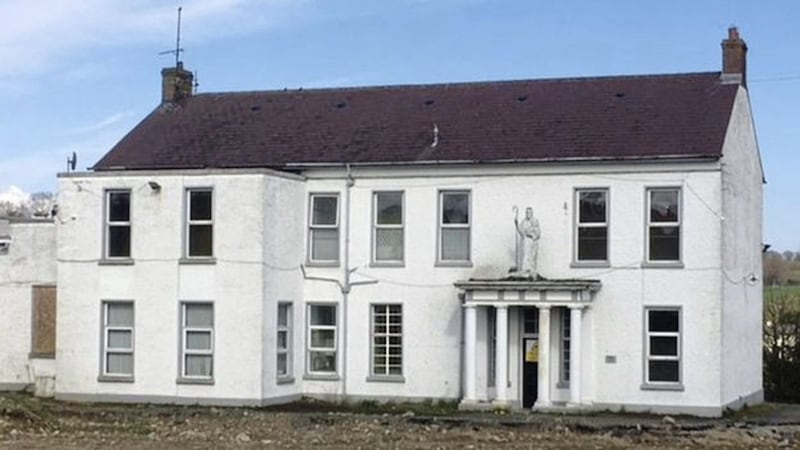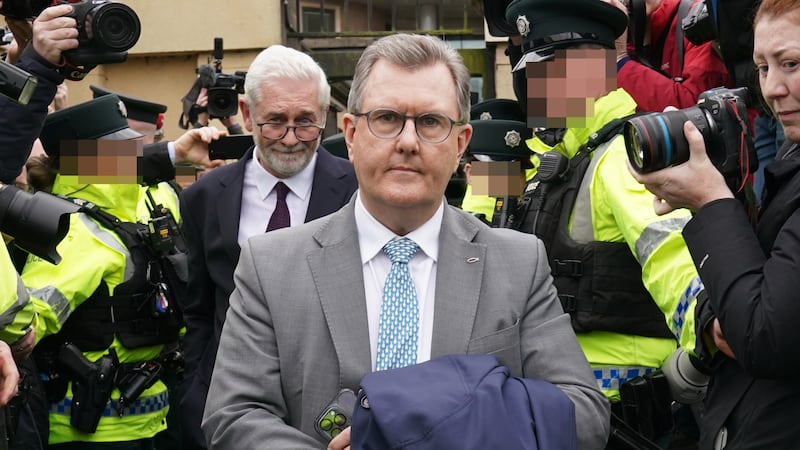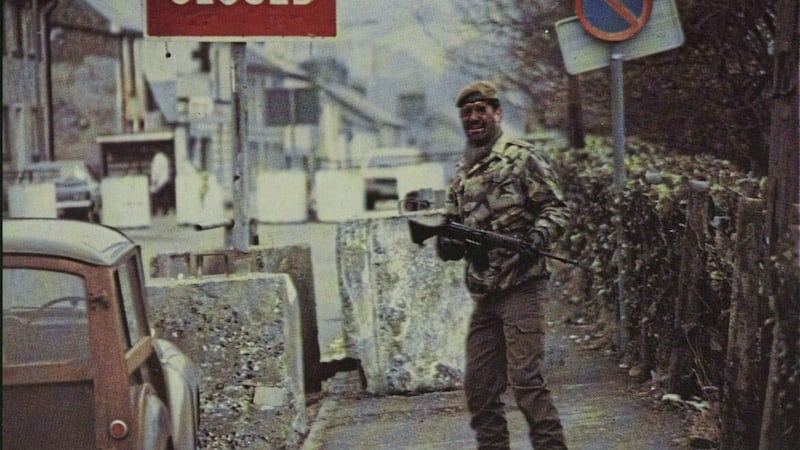A WOMAN who is taking legal action over the failure to set up an inquiry into mother and baby homes in the north has said her life was “destroyed” after her baby girl was adopted.
Mary O’Neill, which is not her real name, gave birth to a baby girl in 1979 while she was at Marianvale home in Newry, Co Down.
The home was run by the Good Shepherd Sisters.
Then just 18, Ms O'Neill said her daughter was adopted without her consent.
“To my knowledge I hadn’t signed adoption papers because if I had I wouldn’t have gone back looking for her,” she said.
“I always thought she was fostered and that some day I would find her. Then I found out she was really gone.”
Ms O’Neill is now taking legal action against the Department of Health in Northern Ireland over the failure to set up an inquiry into homes for unmarried mothers.
The homes, run by the Catholic Church, the Church of Ireland and the Salvation Army, existed in Northern Ireland until the 1980s.
The Republic has already held an investigation into similar homes in the Republic. The Mother and Baby Homes Commission submitted its final report last month but the document has not yet been published.
Ms O’Neill, who lives outside Omagh, Co Tyrone, is now married and has a daughter with her husband.
Although she was reunited with her adopted daughter two years ago after a long search, Ms O’Neill said she still struggles with the pain of her loss.
“I’ll never get over it - the years, the tears, the heartache - it never goes away,” she said.
“It just destroyed my life. Not knowing where she was, what she was doing, if she knew about me. There wasn’t a day that it never crossed your mind. The pain will be there until my dying day.
“She accepts what happened and understands but she’s not my daughter, she’s the daughter of the woman who adopted her.”
She said her oldest daughter’s adopted mother “did a wonderful job”.
Her daughter, now 41, was raised in Derry but moved to the US 17 years ago.
“After 40 years she couldn’t believe that someone was still looking for her,” Ms O’Neill said. “She told me that it was always there, that she wanted to know who she was.”
“She’s over the moon that she has met us and loves us dearly. There came a happy ending out of it but I’ll never really know her. I missed out on everything - her first words, her first walk, communion, confirmation, marriage, everything.”
She said her time in Marianvale was “a nightmare that never leaves you”.
“Between praying, knitting and scrubbing floors - it was hell. They made us knit clothes for children - wee cardigans and things like that," she said.
“There were these little stones (outside the home) and we didn’t know then but that’s where wee babies were buried.”
She added: “We just want justice for what happened to us.”
“To my knowledge I hadn’t signed adoption papers because if I had I wouldn’t have gone back looking for her,” she said.
“I never wanted her to be adopted. If I had to do it now I would have taken her down the road and sat in a ditch and begged for a glass of milk from somebody."
She said mothers and people who were adopted from the homes should receive a public apology and financial compensation, similar to that given to victims and survivors of historical institutional abuse.
Ms O’Neill said mothers’ pain over losing their children has been compounded over how difficult it has been to access their records.
A spokesman for the Sisters of Our Lady of Charity of the Good Shepherd, who ran Marianvale, said: “We wish to state that no babies were buried at Marianvale.
“Adoptions from Marianvale were in compliance with national legislation - each mother had the assistance of an independent social worker who would have been directly involved in the adoption process.
“Persons who were resident in Marianvale can seek access to their personal records, under current legislation.”
An inter-departmental working group into mother and baby homes, Magdalene laundries and historical clerical child abuse was set up in 2016.
The group's research on mother and baby homes is due to be published this year.
Margaret McGuckin, from Survivors and Victims of Institutional Abuse (Savia), said the survivors of mother and baby homes need a public inquiry.
“The truth has to come out. It’s been long enough coming," she said.
“(An inquiry) is just a human act of kindness. Let it all come out. As I say, the stones will cry out.”
Solicitor Claire McKeegan, of Phoenix Law, who is instructed by Ms O’Neill, said:
"Women and children were treated with cruelty and judged when they needed help and support.
"Our clients have no faith in the Interdepartmental Working Group which has achieved nothing but delay since its inception four years ago.
"It did not meet with victims and for over a year had no chairperson.
"Our client has launched proceedings to challenge the failure of the Department of Health to implement what all the survivors have repeatedly asked for, a full statutory inquiry now, in her lifetime."
A spokesman for the Department of Health said: "The Department does not comment on matters which are subject to legal proceedings."








